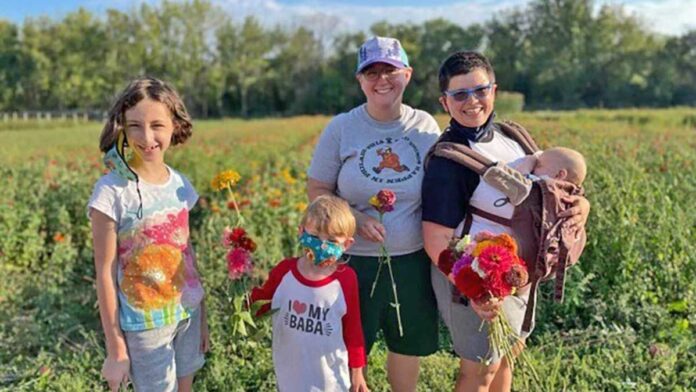Giving birth in a modern hospital can leave new parents frustrated, or even traumatized. The experience can be even tougher if the system isn’t designed to recognize your gender.
A group of Philadelphia birth professionals is trying to change that. The Philly Queer Doula Collective is a peer support group that helps pregnant LGBTQ people find affordable medical care from competent providers, and assist them in navigating the health care system.
“How do we create mini-cultures within that room that center them,” said Jacks Overstreet, a founding member of the collective, “even when a bigger institution can’t offer that?”
Zach Strassburger is an attorney with the Philadelphia Law Department. The second time they were pregnant, they had a miscarriage. When they visited a doctor for a necessary procedure to remove the fetus, the receptionist questioned why they’d need it — and even asked Strassburger to take a pregnancy test as proof.
“I just felt invisible,” Strassburger said. “There’s a disconnect that someone with a traditionally male name would be there for a traditionally female procedure.”
The experience is unfortunately pretty common for queer and trans people who get pregnant. Expecting parents who are LGBTQ have to contend with a system so entrenched in gender norms that they often don’t feel safe.
Things were a little easier next time Strassburger got pregnant, because they tracked down a trans birth professional to help navigate the process from an LGBTQ perspective. With an advocate on their side, Strassburger found the experience completely different. The hospital staff knew their pronouns in advance. When the baby was born, it got a yellow name tag instead of pink or blue.
“I didn’t always have to be explaining myself,” Strassburger said. “I was able to focus on my health.”
The Doula Collective had its genesis in early 2020, when a group of five LGBTQ birthworkers in Philly got together to support one another as they battled through the highly gendered health care system.
“We were needing more consistent and affirming peer support,” said member Noelle Sengsourinh. “We have to do things that cishet people always get access to within our work. It takes a different form of energy, and in some cases it’s more draining.”
After about a year of meeting together, the group decided to try to make the LGBTQ birth experience better for people in their community.
They hosted queer family meet-ups and began compiling a growing resource list.
Collective member Overstreet rattled off some of the resources: “Prenatal care, bodywork, chiropractic care, pediatricians. Just everything under the sun that queer and trans folks need to feel affirmed in their process of becoming parents and building family.”
The list currently includes around 50 queer- and trans-competent medical professionals — doulas, therapists, lactation consultants, grief support groups and others.
Stephanie Brown is one of them. A certified lactation consultant and board president at the Philadelphia Midwife Collective, they prioritize LGBTQ patients and run a regular lactation support group for queer and trans people. The group doesn’t just talk about lactation, Brown said. “It’s more like a space where the language that I’m using is neutral.”
Strassburger, the Law Department staffer, attended Brown’s meetings — and remembers wishing more LGBTQ parents knew they existed.
The Philly Queer Doula Collective is working to make that happen; the group is planning to expand this year.
By adding more birthing professionals to the collective’s ranks, they hope to grow the resource list, turning it into a solid database of solid medical providers. They’re also planning to start consulting, offering to teach big institutions LGBTQ competency.
“We have all these ideas of how to meet the community and create safe spaces, but we’re at our bandwidth,” Overstreet said. “We just need more people to meet the demand of what’s happening.”
This story originally appeared in Billy Penn and is reprinted here as part of Broke in Philly, a collaborative reporting project on economic mobility. Philadelphia Gay News and Billy Penn are among more than 20 news organizations producing Broke in Philly; read more at brokeinphilly.org or follow at @brokeinphilly.
